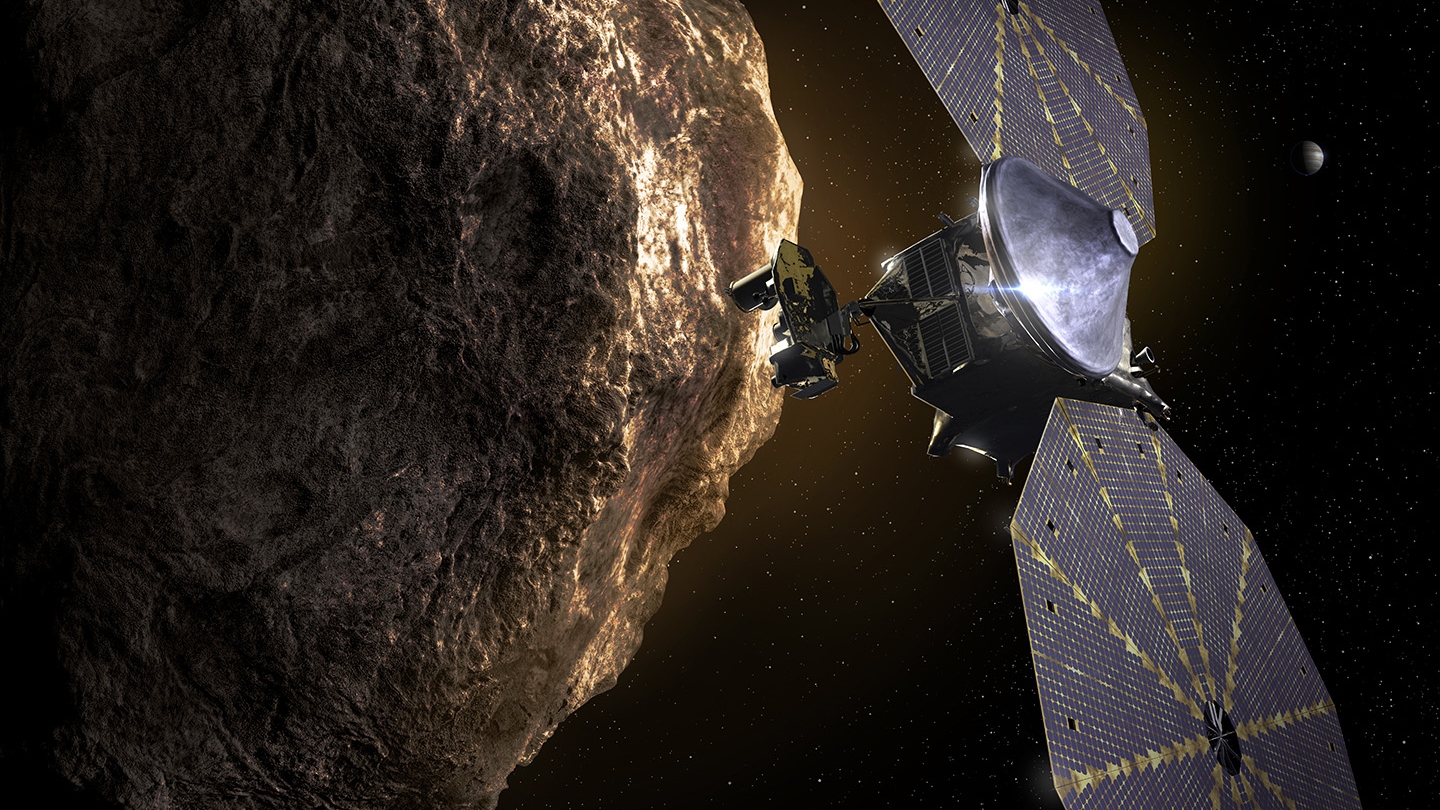On Saturday NASA and the United Launch Alliance (ULA) launched a mission which may help to understand the history of not only our solar system, but perhaps the universe as well.
That mission is Lucy and at the weekend it started its 12 year journey through the solar system from Space Launch Complex 41 at Cape Canaveral Space Force Station in Florida.
The spacecraft will be flying-by one main-belt asteroid and seven Trojan asteroids, getting close enough to observe them and allow researchers to get a better understanding of how planets are formed.
How will it do that? Well Trojan asteroids are believed to be remnants of the material that formed planets in the early stages of the universe’s life. The hope is that by studying these asteroids up close we can uncover how they were formed and potentially help us understand how planets were formed.
The spacecraft is currently headed towards the Sun travelling at roughly 108 000kmph. It will orbit the sun before heading back to Earth for a gravity assist manoeuvre in October 2022 as it heads toward Mars. Lucy will head back to Earth once more for a second gravity assist manoeuvre in 2024 which will launch it toward the Donaldjohanson asteroid in the main asteroid belt of our solar system. Lucy should arrive at the asteroid by 2025.
“Lucy will then journey toward its first Trojan asteroid encounter in the swarm ahead of Jupiter for a 2027 arrival. After completing its first four targeted flybys, the spacecraft will travel back to Earth for a third gravity boost in 2031, which will catapult it to the trailing swarm of Trojans for a 2033 encounter,” NASA explained in a press release.
The orbital path Lucy will take is monumental and you can see it illustrated in the video below. NASA is also set to launch a mission toward an asteroid in November with hopes of testing whether near Earth objects can be deflected.
[Image – Southwest Research Institute]

